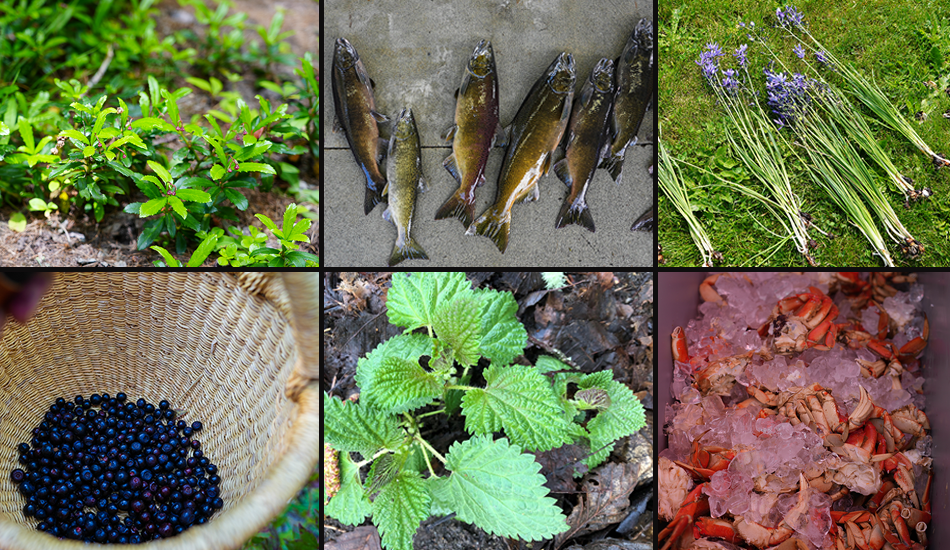By Molly Bryant, Puyallup Tribal News
The concept of “decolonizing your diet” is gaining popularity. Not that the idea of consuming the foods our ancestors ate is new. Tribal communities have been living off of the land since time immemorial.
However, some experts now believe that returning to a traditional diet may be the key to curbing negative health trends that plague some Indigenous communities. According to the Centers for Disease Control and Prevention, Native Americans are twice as likely to be diagnosed with diabetes and also experience higher rates of cancer, obesity and other chronic conditions when compared to other ethnic groups in the United States.
Muckleshoot Tribal member Valerie Segrest, a Native foods educator and owner and founder of Tahoma Peak Solutions LLC, shed light on this topic. Segrest holds a degree in human nutrition from Bastyr University, a school of naturopathic medicine. She was inspired to delve into nutrition after serving as a caretaker for Elders at Muckleshoot. Her role involved completing tasks, assisting with chores, transporting Elders to doctor appointments and preparing their food.
“I felt really compelled to learn that scientific language to be able to navigate doctor’s visits and make those connections between our cultural protocols and values and nutrition guidelines,” she said.
Salmon was a staple of the Coast Salish peoples’ diet and identity, but it was just one component of our ancestors’ diverse diet, which also included seafood, shellfish, wild game, plants and more. Segrest said that more than 300 different foods were eaten before contact with settlers. “There was this great diversity of foods that we’re eating, and salmon contributed,” she said. “Our ancestors contributed to the great abundance of the land through fertilizing and nourishing and cultivating.”
Food sovereignty, as defined by Segrest, is the inherent right of people to define their diet and share their food system. This right was disrupted when the United States government introduced commodity foods during the removal and relocation of Natives, disrupting traditional food systems.
The rationing of lard, wheat flour and canned vegetables, fruits and meats, led to significant health issues within Native communities. Fry bread is an example of a meal made from commodity items: flour, lard and white sugar. It may be delicious, but it is not very nutritious.
“It was a very intentional severing from our food system by the U.S. government through hundreds of years of policies that were intended to keep us away and out of the woods and off of the waters, and remove our children from these systems of education because, really, our education system was centered around our food traditions,” Segrest said.
Dietician Ashley Napoleon has been working with patients at the Puyallup Tribal Health Authority since June. She has seen a wide range of patients with concerns such as diabetes, weight problems, high blood pressure, acid reflux, irritable bowel syndrome and more that can be traced back to diet.
Napoleon is a part of the ‘Full Circle Wellness’ team at PTHA which is comprised of a registered dietician, a health and wellness coach and a personal trainer. She says she discourages patients from pursuing fad diets or otherwise completely restricting certain foods.
“I always start off with telling my patients, especially those who seek weight loss, you know, I’m not going to tell you to throw away the foods you have at home, to stop cooking those recipes that you traditionally do that you traditionally enjoy,” she said.
Working for the Tribe, she strives to focus on ways to implement traditional foods into the diet of her patients. She works with a modified “MyPlate” model, which models a balanced meal, called “My Native Plate.” “I like to go back to those roots and … focus on foods that are grown locally. Let’s focus on foods that are culturally relevant and meaningful and will help heal our bodies,” she said.
Segrest recommends that clients start with small steps when implementing more traditional foods into their diets. “It could be as simple as having a cup of nettle tea every single day or every other day,” she said. “The impacts that your body is going to feel are going to be so immense because these foods are incredibly nutritious.”
For more information on resources related to traditional foods, Segrest writes a column for YES! Magazine that can be found here: https://www.yesmagazine.org/authors/valerie-segrest. She also collaborates on the Native Foods and Plants Portal which can be accessed here: https://nativeplantsandfoodsportal.org/.
Embarking on a health journey? Let us know! We would love to highlight your success stories. Email news@puyalluptribe-nsn.gov.





